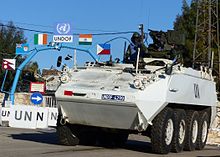
Non-combatant is a term of art in the law of war and international humanitarian law to refer to civilians who are not taking a direct part in hostilities; persons, such as combat medics and military chaplains, who are members of the belligerent armed forces but are protected because of their specific duties ; combatants who are placed hors de combat; and neutral persons, such as peacekeepers, who are not involved in fighting for one of the belligerents involved in a war. This particular status was first recognized under the Geneva Conventions with the First Geneva Convention of 1864.

A declaration of war is a formal act by which one state announces existing or impending war activity against another. The declaration is a performative speech act by an authorized party of a national government, in order to create a state of war between two or more states.
Co-belligerence is the waging of a war in cooperation against a common enemy with or without a military alliance. Generally, the term is used for cases where no formal treaty of alliance exists. Likewise, allies may not become co-belligerents in a war if a casus foederis invoking the alliance has not arisen. Co-belligerents are defined in the Encyclopaedic Dictionary of International Law as "states engaged in a conflict with a common enemy, whether in alliance with each other or not".

The Hague Conventions of 1899 and 1907 are a series of international treaties and declarations negotiated at two international peace conferences at The Hague in the Netherlands. Along with the Geneva Conventions, the Hague Conventions were among the first formal statements of the laws of war and war crimes in the body of secular international law. A third conference was planned for 1914 and later rescheduled for 1915, but it did not take place because of the start of World War I.
A non-belligerent is a person, a state, or other organization that does not fight in a given conflict. The term is often used to describe a country that does not take part militarily in a war.
Ireland is one of four members of the European Union that are not members of NATO. The others are Austria, Cyprus and Malta. The country has a longstanding policy of military neutrality: it does not join military alliances or defence pacts, or take part in international conflicts. The nature of Irish neutrality has varied over time. Ireland declared itself a neutral state during the Second World War, and during the Cold War it did not join NATO nor the Non-Aligned Movement. Since the 1970s, some have defined it more broadly to include a commitment to "United Nations peacekeeping, human rights and disarmament". Recent Irish governments have defined it narrowly as non-membership of military defensive alliances. The compatibility of neutrality with Ireland's membership of the European Union has been a point of debate in EU treaty referendum campaigns since the 1990s. The Seville Declarations on the Treaty of Nice acknowledge Ireland's "traditional policy of military neutrality". The Irish Defence Forces have been involved in many UN peacekeeping missions.
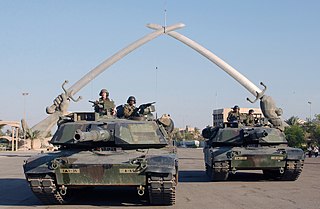
Military occupation, also called belligerent occupation or simply occupation, is the temporary control exerted by a ruling power's military apparatus over a sovereign territory that is outside of the legal boundaries of that ruling power's own sovereign territory. The controlled territory is then known as the occupied territory, with the ruling power being the occupant. Occupation is distinguished from annexation and colonialism on the basis that it is a power structure that the ruling power intends to keep in place only temporarily. In many cases, the occupant may establish a military government to facilitate the administration of the occupied territory, though this is not a necessary precondition for occupation to take place.
Sweden had a policy of neutrality in armed conflicts from the early 19th century, until 2009, when it entered into various mutual defence treaties with the European Union (EU), and other Nordic countries. The policy originated largely as a result of Sweden's involvement in the Napoleonic Wars, during which over a third of the country's territory was lost in the Finnish War (1808–1809), including the traumatic loss of Finland to Russia, which it remained part of until Finland gained independence in 1917. Resentment towards the Swedish king Gustav IV Adolf, who had consistently pursued an anti-Napoleonic policy and thereby caused the war, precipitated a coup d'état known as the Coup of 1809. The new regime deposed the king and introduced the Instrument of Government (1809), later formulating a new foreign policy that became known as The Policy of 1812.
International humanitarian law (IHL), also referred to as the laws of armed conflict, is the law that regulates the conduct of war. It is a branch of international law that seeks to limit the effects of armed conflict by protecting persons who are not participating in hostilities and by restricting and regulating the means and methods of warfare available to combatants.

During World War I and World War II, Switzerland maintained armed neutrality, and was not invaded by its neighbors, in part because of its topography, much of which is mountainous. Germany was a threat and Switzerland built a powerful defense. It served as a "protecting power" for the belligerents of both sides, with a special role in helping prisoners of war. The belligerent states made it the scene for diplomacy, espionage, and commerce, as well as being a safe haven for 300,000 refugees.

The Declaration of Neutrality was a declaration by the Austrian Parliament declaring the country permanently neutral. It was enacted on 26 October 1955 as a constitutional act of parliament, i.e., as part of the Constitution of Austria.
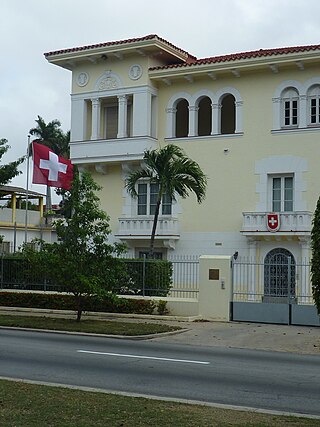
A protecting power is a country that represents another sovereign state in a country where it lacks its own diplomatic representation. It is common for protecting powers to be appointed when two countries break off diplomatic relations with each other. The protecting power is responsible for looking after the protected power's diplomatic property and citizens in the hosting state. If diplomatic relations were broken by the outbreak of war, the protecting power will also inquire into the welfare of prisoners of war and look after the interests of civilians in enemy-occupied territory.

The neutral powers were countries that remained neutral during World War II. Some of these countries had large colonies abroad or had great economic power. Spain had just been through its civil war, which ended on 1 April 1939 —a war that involved several countries that subsequently participated in World War II.
Swiss neutrality is one of the main principles of Switzerland's foreign policy which dictates that Switzerland is not to be involved in armed conflicts between other states. This policy is self-imposed and designed to ensure external security and promote peace.
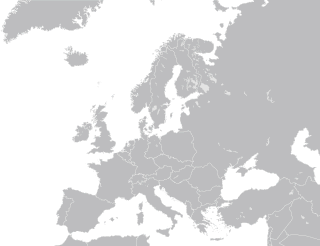
NATO is a military alliance of thirty-two European and North American countries that constitutes a system of collective defense. The process of joining the alliance is governed by Article 10 of the North Atlantic Treaty, which allows for the invitation of "other European States" only and by subsequent agreements. Countries wishing to join must meet certain requirements and complete a multi-step process involving political dialog and military integration. The accession process is overseen by the North Atlantic Council, NATO's governing body. NATO was formed in 1949 with twelve founding members and has added new members ten times. The first additions were Greece and Turkey in 1952. In May 1955, West Germany joined NATO, which was one of the conditions agreed to as part of the end of the country's occupation by France, the United Kingdom, and the United States, prompting the Soviet Union to form its own collective security alliance later that month. Following the end of the Franco regime, newly democratic Spain chose to join NATO in 1982.

The First League of Armed Neutrality was an alliance of European naval powers between 1780 and 1783 which was intended to protect neutral shipping against the British Royal Navy's wartime policy of unlimited search of neutral shipping for French contraband during the American Revolutionary War and Anglo-French War. According to one estimate, 1 in 5 merchant vessels were searched by the Royal Navy under this policy. By September 1778, at least 59 ships had been taken prize – 8 Danish, 16 Swedish and 35 Dutch, as well as others from Prussia. Protests were enormous by every side involved.

The Permanent Structured Cooperation (PESCO) is the part of the European Union's (EU) security and defence policy (CSDP) in which 26 of the 27 national armed forces pursue structural integration. Based on Article 42.6 and Protocol 10 of the Treaty on European Union, introduced by the Treaty of Lisbon in 2009, PESCO was first initiated in 2017. The initial integration within the PESCO format is a number of projects which launched in 2018.

Ireland and the North Atlantic Treaty Organization (NATO) have had a formal relationship since 1999, when Ireland joined as a member of the NATO Partnership for Peace (PfP) program and signed up to NATO's Euro-Atlantic Partnership Council (EAPC). To date, Ireland has not sought to become a member of NATO due to its traditional policy of military neutrality.

The European Union (EU) is an institution of its own kind consisting of member states being part of an alliance as well as military neutral member states while developing a Common Foreign and Security Policy for the union as a whole. The military neutral member states are Austria, Ireland and Malta. Previous military neutral states are Finland and Sweden.
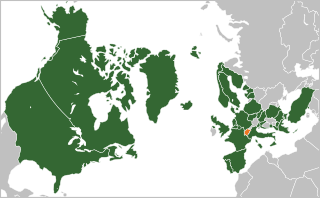
Switzerland is a neutral European country, which is not a member of the North Atlantic Treaty Organization (NATO). Since 1996, Switzerland has participated in NATO's Partnership for Peace (PfP) programme. Switzerland is surrounded by the European Union but not an EU member itself, thereby also maintaining its neutrality with regard to EU membership and the EU mutual defence clause enshrined in Article 42.7 of the consolidated version of the Treaty on European Union, although the EU treaty also provides for neutral countries to maintain their neutrality.

